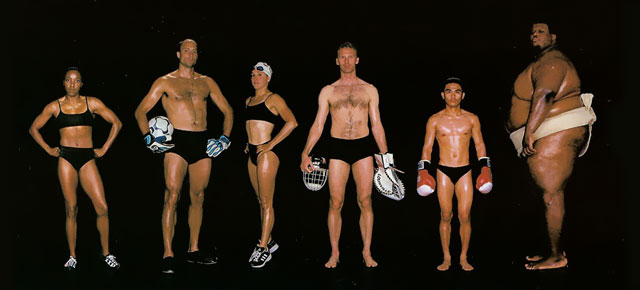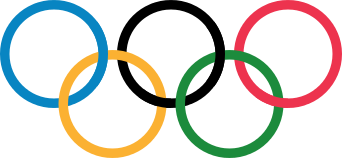Full Pane: Munich 1972, Running (Ajman 1969)
Munich 1972, Running (Ajman 1969)
01 December (Ajman ) within release Venues of the Olympic Summer Games goes into circulation Full Pane Munich 1972, Running face value 25*5 United Arab Emirates riyal
| Full Pane Munich 1972, Running in catalogues | |
|---|---|
| Colnect codes: | Col: AJ 1969.12.00-6c |
Full Pane is square format.
Full pane not mentioned by MichelAlso in the issue Venues of the Olympic Summer Games:
- Stamp - Mexico 1968, Hammer throw face value 50;
- Stamp - Munich 1972, Running face value 70;
- Stamp - Rome 1960, Running face value 15;
- Stamp - Tokyo 1964, Gymnastics face value 30;
- Stamp - Mexico 1968, Hammer Throw face value 2;
- Souvenir Sheet - Mexico 1968, Hammer Throw face value 2;
- Stamp - Munich 1972, Running face value 5;
- Souvenir Sheet - Munich 1972, Running face value 5;
- Souvenir Sheet - Rome 1960, Running face value 15;
- Souvenir Sheet - Rome 1960, Running face value 30;
- Souvenir Sheet - Rome 1960, Running face value 50;
- Souvenir Sheet - Rome 1960, Running face value 70;
- Souvenir Sheet - Munich 1972, Running face value 12;
- Full Pane - Mexico 1968, Hammer throw face value 25*50;
- Full Pane - Munich 1972, Running face value 25*70;
- Full Pane - Rome 1960, Running face value 25*15;
- Full Pane - Tokyo 1964, Gymnastics face value 25*30;
- Full Pane - Mexico 1968, Hammer throw face value 25*2;
- Full Pane - Munich 1972, Running face value 25*5;
Full Pane Munich 1972, Running it reflects the thematic directions:
An athlete is most commonly a person who competes in one or more sports involving physical strength, speed, power, or endurance. Sometimes, the word "athlete" is used to refer specifically to sport of athletics competitors, i.e. including track and field and marathon runners but excluding e.g. swimmers, footballers or basketball players. However in other contexts (mainly in the United States) it is used to refer to all athletics (physical culture) participants of any sport. For the latter definition, the word sportsperson or its gendered sportsman or sportswoman are also used. A third definition is also sometimes used meaning anyone who is physically fit regardless of whether or not they compete in a spo
Athletics is a group of sporting events that involves competitive running, jumping and throwing. The most common types of athletics competitions are track and field, road running, cross-country running, and race walking.
A flag is a piece of fabric (most often rectangular or quadrilateral) with a distinctive design that is used as a symbol, as a signaling device, or as decoration. The term flag is also used to refer to the graphic design employed, and flags have since evolved into a general tool for rudimentary signalling and identification, especially in environments where communication is similarly challenging (such as the maritime environment where semaphore is used). National flags are patriotic symbols with varied wide-ranging interpretations, often including strong military associations due to their original and ongoing military uses. Flags are also used in messaging, advertising, or for other decorative purposes. The study of flags is known as vexillology, from the Latin word vexillum, meaning flag or banner.
The modern Olympic Games or Olympics (French: Jeux olympiques) are leading international sporting events featuring summer and winter sports competitions in which thousands of athletes from around the world participate in a variety of competitions. The Olympic Games are considered the world's foremost sports competition with more than 200 nations participating. The Olympic Games are held every four years, with the Summer and Winter Games alternating by occurring every four years but two years apart.
Running is a method of terrestrial locomotion by which humans and other animals move rapidly on foot. Running is a gait with an aerial phase in which all feet are above the ground (though there are exceptions). This is in contrast to walking, where one foot is always in contact with the ground, the legs are kept mostly straight, and the center of gravity vaults over the stance leg or legs in an inverted pendulum fashion. A feature of a running body from the viewpoint of spring-mass mechanics is that changes in kinetic and potential energy within a stride co-occur, with energy storage accomplished by springy tendons and passive muscle elasticity. The term "running" can refer to a variety of speeds ranging from jogging to sprinting.
Sport is a form of physical activity or game. Often competitive and organized, sports use, maintain, or improve physical ability and skills. They also provide enjoyment to participants and, in some cases, entertainment to spectators. Many sports exist, with different participant numbers, some are done by a single person with others being done by hundreds. Most sports take place either in teams or competing as individuals. Some sports allow a "tie" or "draw", in which there is no single winner; others provide tie-breaking methods to ensure one winner. A number of contests may be arranged in a tournament format, producing a champion. Many sports leagues make an annual champion by arranging games in a regular sports season, followed in some cases by playoffs.





